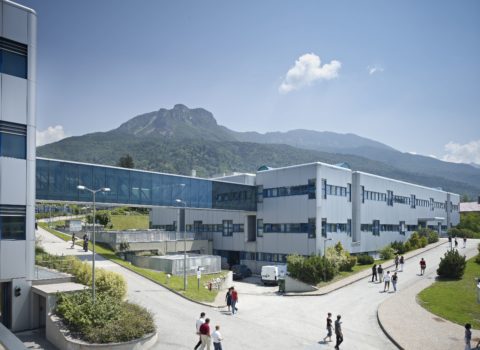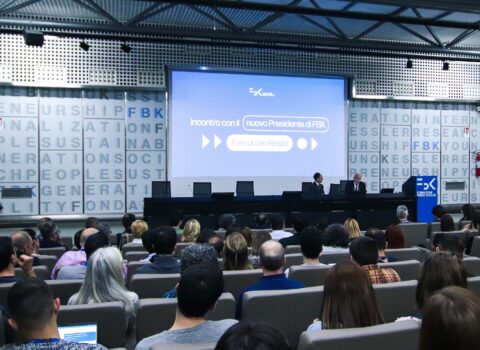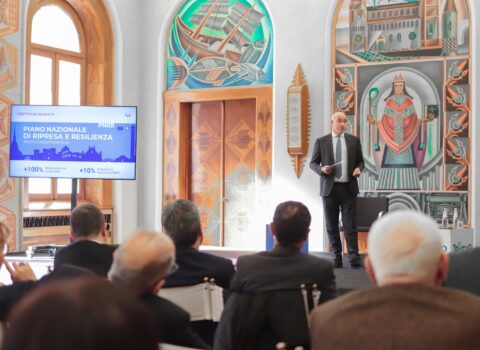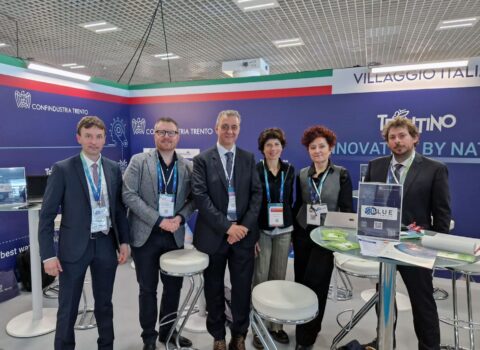
Artificial Intelligence as a driver for innovation for Trentino-based companies
Maurizio Gianordoli, FBK vice-president, illustrates the main applications of AI for the local area, the challenges of technological integration and the future vision for a competitive and sustainable entrepreneurial ecosystem.
We had the pleasure of speaking with FBK Vice President Maurizio Gianordoli. With a background dedicated to technology innovation, initially as a start-upper and now as an entrepreneur – Gianordoli was appointed by Confindustria to FBK’s Board of Directors also thanks to his role in promoting the local entrepreneurial ecosystem. We spoke with him about his view on advanced research projects to the practical application of new technologies in enterprises and in particular his role in facilitating the digital transformation of Trentino companies.
What are the main applications of Artificial Intelligence that you see as most promising for businesses, especially for those in Trentino?
Reflecting on the Trentino business context, I believe that the main applications are first of all in process automation within the manufacturing sector, with the opportunity to automate repetitive tasks and optimize production processes in supply chains, improving the quality of the end product. Another very important context in our area is agriculture, where precision farming technologies, monitoring harvesting in the fields and controlling the machinery used are crucial. For us citizens, another relevant issue is health and healthcare. Artificial intelligence will be crucial for professionals in diagnosing and optimizing access to healthcare services with telemedicine platforms, which can help solve problems such as waiting lists.
How are businesses in Trentino responding to digital transformation and the adoption of Artificial Intelligence?
Our Trentino companies are taking three fundamental actions. The first is an increasingly strong collaboration with research centers, and in this sense FBK is at the forefront in providing its expertise to improve companies’ research and development projects, moving them towards applied research and production. Then there is the need for greater participation in innovative projects, especially European ones funded by the Commission, which represent a key opportunity to improve innovation in our companies. Finally, it is crucial to promote a business and innovation culture, with training courses for managers, directors and CEOs, so that they increasingly understand the relevance of this new technology.
What are the main challenges facing Trentino companies in integrating Artificial Intelligence into their business processes?
This new digital revolution undoubtedly brings great progress, but major challenges must be overcome. The first that comes to mind is the resistance to change within companies, which requires culture and training to accelerate this process. Another complex challenge is the new investments required. Our companies will have to invest more and more, but access to credit is a complicated process and a significant challenge. Finally, a crucial aspect is skills: it is increasingly difficult to have in-house expertise and high-level profiles that can bring real innovation. Therefore, strong collaboration with universities and research centers will be necessary.
Looking to the future, how do you see the evolution of the Trentino business ecosystem with the increasingly widespread integration of Artificial Intelligence? What opportunities and risks do you think companies will have to consider in the coming years?
Artificial intelligence will undoubtedly bring great progress within our companies, which will have to increase their competitiveness: more innovation also means more competition. An important topic for our region will be smart tourism, i.e. the use of new technologies in this sector, leading to greater attractiveness for both tourism and business.
Another relevant aspect will be the role of sustainability and ESG issues. Innovation and artificial intelligence will strongly influence this sector, leading to greater sustainability in business and public administration.
This new technology will introduce profound changes in our ecosystem. Businesses will become more competitive through internal innovation and tourism will become smarter and more attractive, making it more sustainable overall. Sustainability and ESG issues, aligned with innovation, will bring great progress.
In conclusion, artificial intelligence offers enormous opportunities to improve the efficiency, innovation and competitiveness of our businesses. However, it is crucial to put people back at the center, combining enthusiasm for this innovation with a focus on ethics and change management.






